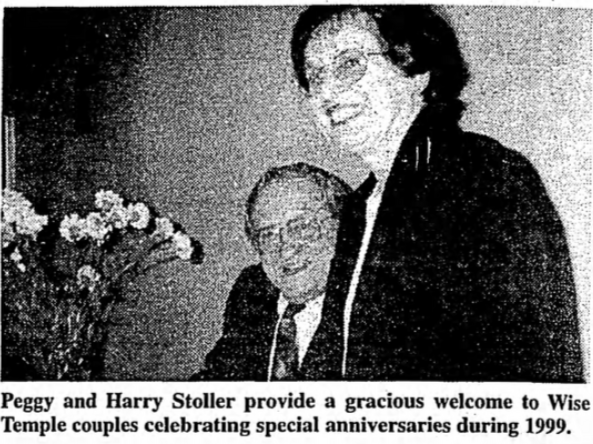Our society is a tapestry of social, geopolitical, economic and unexpected global trauma. Every 15 to 20 years we have a new generation. We label them with special names (e.g., Boomer) to differentiate one from the other and keep ourselves organized. Sometimes the media gives us direction but more often than not it stereotypes and highlights differences that fit into 20 second soundbites which are less than helpful.
If there is something to take away from this column it is that all generalizations are false, including this one.
We would like to think each generation is unique and brings its own set of values, beliefs, and experiences, shaping the world in distinct ways. But that’s not exactly true. Generations are more alike than they are different. Sometimes they echo each other because they have learned from the other’s successes and mistakes.
We learn from our parents. We follow those who have done well, and we try to positively influence our children. Hopefully, we respect those who have provided a meaningful and genuine path for us to emulate, and if we work hard we can leave behind a legacy that has improved the lives of others that we can be proud of.
In this column, it is my intent to delve into what we have come to know as some cultural differences, work ethics, and relationships of five key generations: Baby Boomers, Generation X, Millennials, Generation Z, and the emerging Polar Generations. Through a blend of pop culture references, sociological studies, and opinion surveys, I will illuminate the distinct characteristics of each generation, exploring how they navigate the world around them.
In his 2019 Gallup Poll article, “Wellbeing by Generation: Where some thrive others struggle,” November 8, 2019, Ryan Wolf found there were five interconnected elements of wellbeing that all of the generations share in common: career, social, financial, physical and community wellbeing. Not surprisingly, each generation has been influenced by the trauma to which they have been exposed (think 9/11 and October 7) and have made some immediate and longer term changes to cope with the unexpected.
The Baby Boomers were born between 1946 and 1964. They came into this world after World War II. The time was marked by economic prosperity and dramatic social change from the generation before.
Boomers witnessed the Civil Rights Movement, the Vietnam War, and the rise of television as a dominant cultural force. We (I am one of them) were the first generation to grow up with television, and we were characterized by shows like “All in the Family,” which challenged traditional norms and reflected the changing face of America.
Are there really cultural differences?
Baby Boomers are often characterized by their idealism and activism. For some, they embraced the counterculture of the 1960s and 1970s, advocating for civil rights, women’s rights, and environmental protection. They also experienced significant economic growth, setting the stage for a strong sense of optimism and a belief in the American Dream (think Martin Luther King and his “I Have A Dream” speech on the steps of the Lincoln Memorial in 1963).
Members of Generation X were born between 1965 and 1980. They are often given a bad rap and characterized as cynical and skeptical. They grew up in a time of economic as well as social instability (not dissimilar to Boomers and now the most recent generation at the time of George Floyd’s murder).
On a positive note, they are also known for their independence and resilience. They are also referred to as the latch key generation, due to the high number of children who were left unsupervised after school.
Millennials were born between 1981 and 1996 are stereotyped as multiculturalist and diverse. On a positive note, they are considered more open minded than the Boomers and Gen Xs.
Considered accepting of different lifestyles and beliefs, they are characterized rightly or wrongly as valuing experiences over material possessions. They are sometimes seen preferring to spend their money on travel and entertainment.
Members of Generation Z were born between 1997 and 2012. They are often characterized as pragmatic and realistic. They are stereotyped as more cautious and skeptical than previous generations because they grew up in a time of economic uncertainty (not unlike the Silent generation that grew up during the time of the Great Depression — are we seeing a pattern yet?) and environmental crisis.
Gen Zs are also considered diverse and inclusive, valuing equality and social justice (an echo of some Baby Boomer values).
The current Polar Generation were born between 2013 and the present. They are seen as adaptive and resilient. They are reportedly able to navigate between the digital and analog (dial-up) worlds with ease. They are considered creative as they bring a fresh perspective to age-old problems. The Polar Generation values innovation and creativity, often blending traditional values with modern technology. This is not surprising, as they’ve only known modern technology as a way to solve problems.
What about work ethics. Is there a difference?
Baby boomers are typically known for their strong work ethic and dedication to their careers. Seen as valuing loyalty and commitment, they often stay with the same company for years. Boomers are comfortable with traditional hierarchies and structures. They abhor chaos (who doesn’t ?) in the workplace.
Generation Xs are reportedly known for their entrepreneurial spirit and desire for a work life balance. They place their priority on flexibility and autonomy. They often opt for freelance or remote work assignments.
Interestingly, COVID has turned the world of work upside down and all the generations have taken a page from Generation X’s playbook, because all employees desire remote work if they have their druthers.
Millennials value flexibility as well. They too desire purpose in their work, which I don’t find atypical. They are characterized as more likely to job hop in search of better opportunities. Not unlike some of their predecessor generations, Millennials value work-life balance. Most recently they have been recognized as prioritizing their mental health (think Simone Biles, who withdrew from the team final in the 2020 Olympics). I don’t know your feelings about her withdrawal, but I can say it drew applause, admiration and criticism.
Gen Zers also value work-life balance similar to their predecessors and are more likely to prioritize their mental health. There is something to be said for the saying “nothing new under the sun.” The more things change, the more things stay the same.
But don’t feel comfortable thinking you know Boomers, Gen Xs, Gen Zs, Millennials or Polar generations just because you are one.
Michael Dimock, in his May 2023 Pew article, “5 Things to Keep in Mind When You Hear About Gen Z, Millennials, Boomers and Other Generations,” put his finger on it when he said “Generational categories are not scientifically defined. The boundaries that place one person in Gen Z and another in the Millennial generation are not precise, definitive or universally agreed on. Even the names of generations are not uniformly adopted: Is it Millennials or Generation Y? Gen Z or iGen?”
Dimock rightfully goes on to say “Generational labels can lead to stereotypes and oversimplification. All Millennials or Baby Boomers are not the same, just as all Southerners, all Catholics or all Black Americans are not the same. Shared experiences and identities should be recognized — and at their best can even be empowering — but this shouldn’t come at the expense of individuality.”
Where do the generations stand on relationships?
Baby Boomers are said to place a high value on relationships and personal connections. We are described as valuing face to face communications and tend to prioritize family and community involvement. Ryan Wolf, from the above mentioned 2019 Gallup article, found that “Boomers are often thought of as loyal to employers and teams and want to contribute whole-heartedly to the organization until they feel like they’re done.”
Known as the latch key kids, Generation X grew up in a time of economic uncertainty and social upheaval. They experienced the end of the Cold War, the rise of the Internet, and the emergence of MTV as a cultural force.
Shows like “Roseanne” and “Married with Children” reflected the struggles and realities of everyday life for many Gen. Xers. I personally feel sorry for a generation for whom a television sitcom defines their struggles, just like I think “All in the Family” is a terrible but true expression of some of the struggles Boomers had with the generation before us.
Generation X’s perspective on relationships are seemingly more pragmatic. They are known as valuing compatibility. They are more likely to prioritize their careers along with personal development over traditional notions of either one or the other.
Millennials are characterized in social media as prioritizing friendships and social connections. They are seen as forming close-knit communities both online and offline. The statistics show they delay marriage and starting a family, opting instead to focus on their careers and personal development.
Generation Z shows a more fluid view on relationships. They value authenticity and honesty (which should go without saying for all the generations). They are more comfortable in forming friendships and romantic relationships online. Not the originators of the dating apps (which first started in 1995 with Match.com), they nevertheless use social media and dating apps to connect with others.
The Polar Generation is still finding its way and are less clearly defined than the other generations. So far, they seem to have a more balanced approach to relationships, valuing both online and offline connections. They are still seen as more likely to form diverse social networks and value inclusivity and equality in their relationships. Let’s wait and see.
Millennials: The Digital Natives
Born between 1981 and 1996, Millennials are the first generation to grow up with the Internet and digital technology. They came of age during the Great Recession and have been shaped by the events of 9/11 and the rise of social media. Millennials are often negatively portrayed as entitled and narcissistic. However, they are also known for their optimism and desire for social change.
Generation Z: The Digital Natives 2.0
Born between 1997 and 2012, Generation Z is the first generation to grow up entirely in the digital age. They have never known a world without smartphones and social media, making them the most technologically savvy generation yet. Gen Zs are known for their activism and social consciousness, having grown up in a time of political and social unrest.
Polar Generation: The Bridge Builders
As we move into the future, new generational cohorts are emerging, each with their own unique characteristics and perspectives. These Polar generations are bridging the gap between the digital natives and the analog pioneers, bringing together the best of both worlds. While their cultural differences work ethic and relationships are still evolving, they are already making an impact on the world around them.
I hope you enjoyed this look at our generational divide. Thanks for reading the column.
Please go to the AI website and post a comment.
Questions? Suggestions? Send me an email at psychology@americanisraelite.com. Be well. Stay safe. See you here next month.





